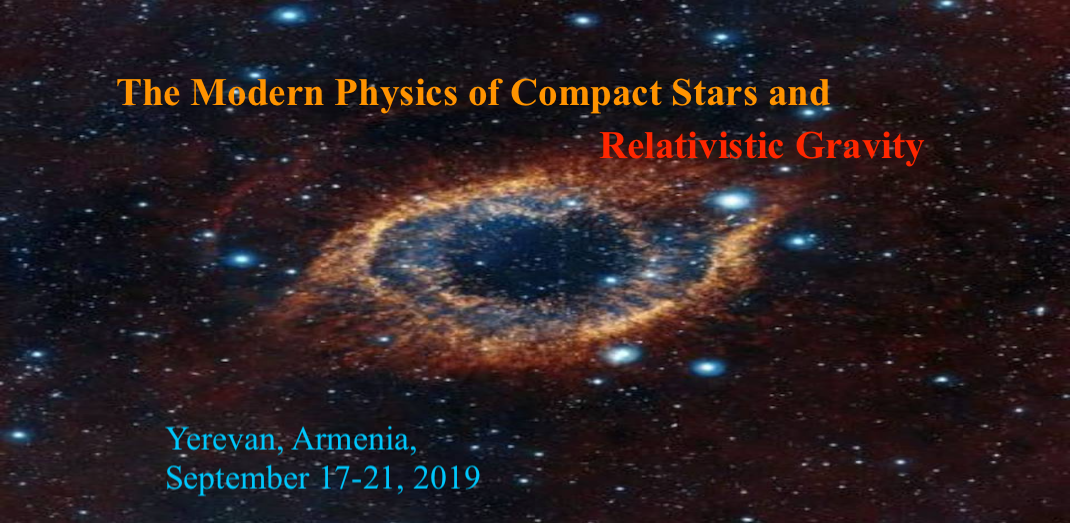Speaker
Description
We study the properties of compact stars by taking into account the hadron-quark phase transition, as a result of which a quark matter core is formed in the central part of the star. In order to describe the quark matter, the local version of three-flavor Nambu-Jona-Lasinio (NJL) model is used. The thermodynamic characteristics of the hadronic matter are calculated within the framework of the extended version of the relativistic mean field (RMF) model, in which the contribution of the scalar-isovector $\delta$-meson effective field is also taken into account. To determine the parameters of the phase transition, both the Maxwell and the Gibbs constructions are applied. It is shown that in case of the equation of state considered by us, the narrow central density interval, $\rho_c\in(1.71\div1.73]10^{15} g / cm^3$, corresponds to stable neutron stars with a deconfined quark matter core. Our study showed that compact stars of masses of $2 M_\odot$ are compatible with possible existence of deconfined quark matter in their core.
